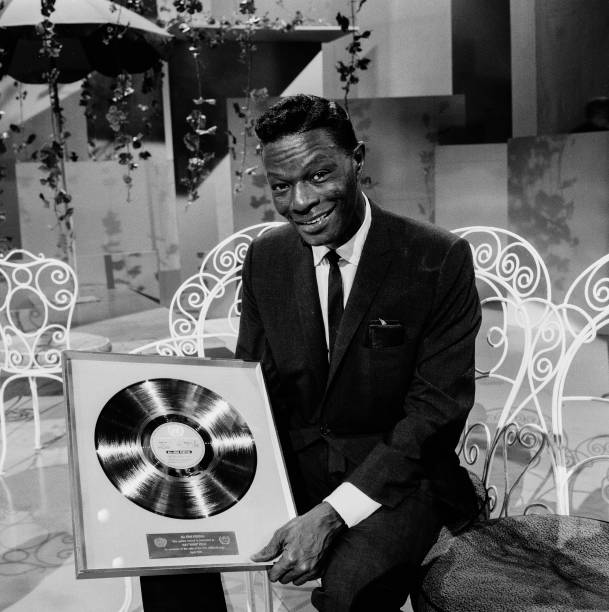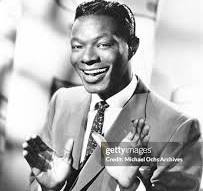The Velvet Voice That Broke Barriers and Charmed the World

Nathaniel Adams Coles, known professionally as Nat King Cole, was born on March 17, 1919, in Montgomery, Alabama. From these humble beginnings, he would rise to become one of the most celebrated and influential musicians of the 20th century, known for his silky smooth voice and pioneering contributions to the world of jazz and popular music.
Cole's musical journey began early, with his mother, a church choir director, cultivating his talent. By the age of four, he was already showing a prodigious ability in piano, and by 12, he had begun formal lessons, immersing himself in the world of classical music. However, the vibrant and soulful rhythms of jazz, blues, and gospel that permeated his environment soon drew him in a different direction.
 The Coles family moved to Chicago during the Great Migration, where young Nat was further exposed to the thriving jazz scene. By his teens, he was performing in jazz clubs, despite his father's reservations, given their church background. It was during this time that he adopted the stage name "Nat Cole," later adding the "King" as a nod to the nursery rhyme "Old King Cole."
The Coles family moved to Chicago during the Great Migration, where young Nat was further exposed to the thriving jazz scene. By his teens, he was performing in jazz clubs, despite his father's reservations, given their church background. It was during this time that he adopted the stage name "Nat Cole," later adding the "King" as a nod to the nursery rhyme "Old King Cole."
In the late 1930s, Cole formed the King Cole Trio, initially focusing on instrumental jazz. The trio gained fame for their unique sound, blending piano, guitar, and bass with Cole's smooth, rolling piano style at the forefront. However, it was Cole's velvety voice, initially showcased in secondary to his piano playing, that would catapult him into international stardom.
 His breakthrough came with the 1943 hit "Straighten Up and Fly Right," a tune influenced by his father's sermons and the folk music he grew up around. This marked the beginning of a series of hits, including unforgettable tracks like "Route 66," "The Christmas Song," and "Mona Lisa."
Despite his growing fame, Cole's path was fraught with the harsh realities of being an African American artist in a segregated society. He faced discrimination and racism, even at the height of his career, yet he navigated these challenges with grace and determination, becoming the first African American to host a national television variety show, "The Nat King Cole Show," in 1956.
His breakthrough came with the 1943 hit "Straighten Up and Fly Right," a tune influenced by his father's sermons and the folk music he grew up around. This marked the beginning of a series of hits, including unforgettable tracks like "Route 66," "The Christmas Song," and "Mona Lisa."
Despite his growing fame, Cole's path was fraught with the harsh realities of being an African American artist in a segregated society. He faced discrimination and racism, even at the height of his career, yet he navigated these challenges with grace and determination, becoming the first African American to host a national television variety show, "The Nat King Cole Show," in 1956.
Cole's impact on the music industry was not just through his songs, but also through his role in breaking down racial barriers in the entertainment world. His television show, though short-lived due to a lack of national sponsorship, was a milestone in the representation of African Americans in mainstream media.
Throughout the 1950s and early 1960s, Cole continued to release hit after hit, including classics like "Unforgettable" and "Stardust." His style evolved, showcasing his versatility and ability to blend jazz with pop, creating a sound that was both sophisticated and accessible.
Offstage, Cole was a family man, married twice, and had five children, including Natalie Cole, who would go on to become a successful singer in her own right. His marriage in 1948 to Maria Hawkins Ellington, a celebrated jazz singer and Duke Ellington's niece, was a notable event, celebrated in the African American press at the time.
 Nat King Cole's life was tragically cut short by lung cancer; he died on February 15, 1965, at the age of 45. His death was a significant loss to the music world, but his legacy lives on. Cole's contributions to music and his role in breaking racial barriers have cemented his status as not just a great musician, but a cultural icon.
Nat King Cole's life was tragically cut short by lung cancer; he died on February 15, 1965, at the age of 45. His death was a significant loss to the music world, but his legacy lives on. Cole's contributions to music and his role in breaking racial barriers have cemented his status as not just a great musician, but a cultural icon.
His smooth voice and elegant piano playing continue to enchant audiences worldwide, and his story remains a powerful testament to the transformative power of music and the enduring spirit of an artist who rose above the challenges of his time to leave an indelible mark on the world.
TOP
